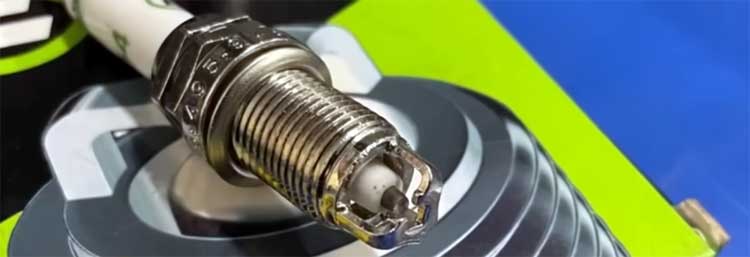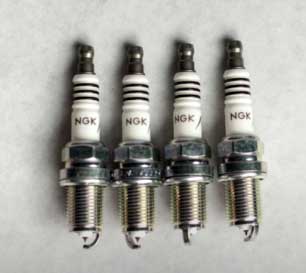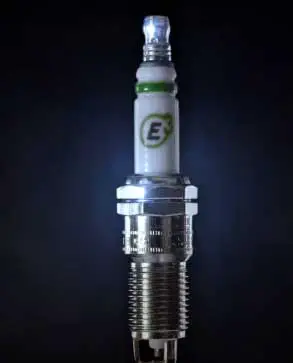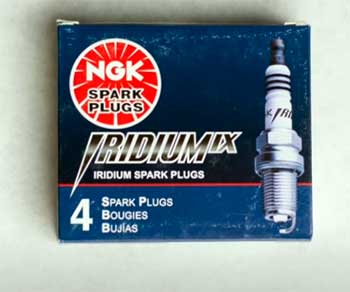When it comes to getting the most out of your engine, choosing the right spark plugs can make a world of difference. If you’re like me, you’ve probably wondered whether investing in high-performance spark plugs really lives up to the hype.
I found myself torn between two major contenders in the market: E3 Spark Plugs and NGK Spark Plugs. Both brands promise superior performance, improved fuel efficiency, and longer-lasting results. But which one really delivers?
Let’s break it down together, starting with an overview of each, comparing key features, and examining their pros and cons.
A Quick Comparison
| Feature | E3 Spark Plugs | NGK Spark Plugs |
| Technology | DiamondFire electrode design | Traditional copper, iridium, or platinum |
| Material | Copper core with nickel-alloy electrode | Iridium, platinum, or copper |
| Durability | Lasts 100,000 miles on average | Up to 60,000 miles (iridium lasts longer) |
| Performance | Focus on improved combustion efficiency | Known for consistent, reliable performance |
| Fuel Efficiency | Claims to improve gas mileage | Known for stable fuel efficiency |
| Price Range | Mid-range | Wide range (from budget to premium) |
| Ease of Installation | Fairly easy to install | Simple installation process |
| Application | Best for high-performance engines | Available for various engine types |
Now that you have a snapshot of the basic differences, let’s break down the details so you can decide which brand is the better fit for your engine.
Understanding E3 Spark Plugs: Key Features and Benefits

E3 Spark Plugs are designed to optimize your engine’s combustion process, thanks to their unique DiamondFire electrode design.
This design isn’t just about aesthetics. It creates a more powerful and complete combustion process by producing a stronger and more directed spark, theoretically improving fuel efficiency and reducing carbon buildup.
What Stands Out with E3?
- DiamondFire Technology: E3 plugs use an innovative design that promotes a larger flame kernel, which is meant to optimize combustion efficiency. This feature claims to burn more of the fuel, reducing emissions and improving fuel economy. In theory, this is great for engines that demand high performance.
- Eco-Friendly: E3 boasts of being more environmentally friendly by cutting down on unburnt fuel. Less unburnt fuel means fewer emissions, and that’s something worth noting if you’re eco-conscious like me.
- Durability: These plugs are advertised to last up to 100,000 miles, which means less frequent replacement and maintenance costs.
- Performance Boost: E3 claims its design leads to better throttle response and horsepower gains, especially in high-performance applications like sports cars and trucks.
Pros of E3 Spark Plugs:
- Improved combustion efficiency: Thanks to the DiamondFire design.
- Extended life: Can last up to 100,000 miles, reducing the need for frequent changes.
- Environmentally friendly: Reduced emissions due to more complete combustion.
- Fuel economy: There are claims that the unique design helps with improving fuel efficiency over time.
Cons of E3 Spark Plugs:
- High performance might not be necessary for all vehicles: If you’re driving a daily commuter vehicle, the benefits may not be as noticeable as in performance vehicles.
- Price: While not the most expensive, E3 spark plugs sit at a mid-tier price point, which can add up if you’re buying for multiple cylinders.
- Limited materials: Unlike NGK’s broader material selection, E3 focuses mainly on its patented technology.
NGK Spark Plugs: Why They’re a Go-To Choice for Many
NGK, on the other hand, has built a long-standing reputation for making some of the best spark plugs on the market, catering to a wide range of engines and driving conditions.
What makes NGK a trusted name in the automotive world is its consistent focus on reliable performance, regardless of the vehicle type. Whether you’re driving a high-performance car or a standard sedan, NGK offers a spark plug to meet your specific needs.
What Stands Out with NGK?

- Material Variety: NGK spark plugs come in multiple material options—copper, platinum, and iridium—allowing you to choose the right one for your engine and driving needs. Iridium, for instance, is known for its high durability and excellent conductivity, making it a top pick for those who want long-lasting performance.
- Wide Application: NGK has options for just about every vehicle out there. From high-performance cars to daily commuters and even motorcycles, NGK covers all the bases.
- Reliability: NGK has built its name on reliability. You can expect steady, consistent performance from these plugs. No surprises, just dependable ignition over the long term.
- Fuel Efficiency and Emissions: Like E3, NGK spark plugs also help maintain good fuel economy and reduce harmful emissions. However, they are more conservative in their claims compared to E3, focusing on maintaining fuel efficiency rather than promising significant improvements.
Pros of NGK Spark Plugs:
- Durability and longevity: NGK iridium plugs are known for their long lifespan, with iridium options lasting up to 60,000 miles or more.
- Multiple material choices: Whether you need a budget-friendly copper plug or a high-performance iridium plug, NGK has options for everyone.
- Consistent performance: These spark plugs are known for providing reliable ignition, making them a great all-around choice for most vehicles.
- Affordable options: NGK offers a range of price points to fit different budgets, from basic to premium plugs.
Cons of NGK Spark Plugs:
- Shorter lifespan for copper plugs: Copper NGK plugs won’t last as long as iridium or platinum versions, requiring more frequent replacements.
- Less innovation in design: While reliable, NGK doesn’t offer the same cutting-edge electrode designs as E3. Instead, they focus more on materials and durability.
- Marginal fuel efficiency claims: Unlike E3, NGK doesn’t market a significant boost in fuel efficiency, which might be a consideration if you’re looking for that specific benefit.
Key Differences Between E3 And NGK Spark Plugs
While both E3 and NGK spark plugs are designed to enhance engine performance, they differ significantly in their approach, materials, and specific benefits.

- Electrode Design: E3 Spark Plugs feature a unique DiamondFire electrode design, which is engineered to improve combustion efficiency by creating a larger flame kernel. This is intended to boost power, reduce emissions, and improve fuel efficiency. On the other hand, NGK uses more traditional electrode designs, focusing on reliable performance rather than radical innovation.
- Material Composition: E3 spark plugs are made with a copper core and a nickel-alloy electrode, while NGK offers more material variety, including copper, platinum, and iridium options. NGK’s iridium plugs are known for their durability and conductivity, making them ideal for long-lasting performance.
- Durability and Longevity: E3 Spark Plugs are built to last up to 100,000 miles, which is significantly higher than NGK’s copper plugs. However, NGK’s iridium plugs can last anywhere from 60,000 miles to 100,000 miles, depending on usage, offering excellent longevity in premium versions.
- Target Audience: E3 is better suited for high-performance engines and drivers looking for a boost in fuel efficiency and environmental benefits. NGK, with its wider range of materials and price points, is more versatile, serving both high-performance and everyday vehicles with reliable ignition.
- Price Range: E3 sits in a mid-tier price range, while NGK offers a broader range from budget-friendly copper plugs to premium iridium options, making it more accessible to a variety of drivers.
Which Spark Plug Is Right For You?
Choosing between E3 and NGK spark plugs ultimately depends on your vehicle, driving habits, and what you’re looking to achieve. Here are some scenarios to help you decide.
Go with E3 Spark Plugs If:
- You’re driving a performance-oriented vehicle that could benefit from enhanced throttle response and combustion efficiency.
- You’re concerned about environmental impact and want to reduce emissions while boosting fuel efficiency.
- You want a plug that could last up to 100,000 miles, cutting down on replacement costs and time.
Go with NGK Spark Plugs If:
- You’re looking for tried-and-true reliability, with a spark plug brand trusted by car enthusiasts and mechanics alike.
- Your vehicle doesn’t necessarily need high-performance spark plugs, but you want something durable and consistent.
- You appreciate having options in materials and price points to suit your specific vehicle and budget.
- Longevity is a priority, especially if you choose iridium NGK plugs, which can last for years before needing replacement.
Maintenance Tips For Spark Plugs
Both E3 and NGK spark plugs require minimal maintenance, but there are a few steps you can take to ensure you’re getting the most out of them:

- Regular Inspection: Make it a habit to check your spark plugs at regular intervals—around 30,000 miles is a good rule of thumb, even if your plugs are rated to last longer.
- Keep an Eye on Your Engine Performance: If you notice your engine misfiring, losing power, or your fuel efficiency dropping, it might be time to inspect and replace your spark plugs.
- Use the Right Tools: When replacing spark plugs, make sure you’re using the right tools, including a spark plug socket and torque wrench, to avoid damaging the plugs or your engine.
Also Read: Are Autolite Spark Plugs Worth It?
Frequently Asked Questions (FAQs)
Yes, E3 Spark Plugs are designed to improve combustion efficiency, which can lead to better throttle response and slightly improved fuel economy, especially in high-performance engines.
No, E3 spark plugs do not use iridium. They feature a copper core with a nickel-alloy electrode, relying on their DiamondFire design for enhanced performance.
E3 Spark Plugs are built to last up to 100,000 miles, making them a long-lasting option compared to traditional copper plugs.
E3 claims that their unique design helps to improve fuel efficiency by ensuring more complete combustion. While results can vary, some users report improved gas mileage, especially in performance vehicles.
Wrapping up
Both E3 and NGK spark plugs bring their own strengths to the table, making them excellent choices depending on your vehicle’s needs. E3’s cutting-edge design is ideal for performance enthusiasts looking to optimize fuel efficiency and reduce emissions.
NGK, on the other hand, offers versatility and reliability with a wide range of materials and applications.
In the end, the choice boils down to what you value most—innovative design and potential fuel savings with E3 or the tried-and-true reliability and variety of NGK. Whichever you choose, both brands offer excellent options for improving your vehicle’s performance.

